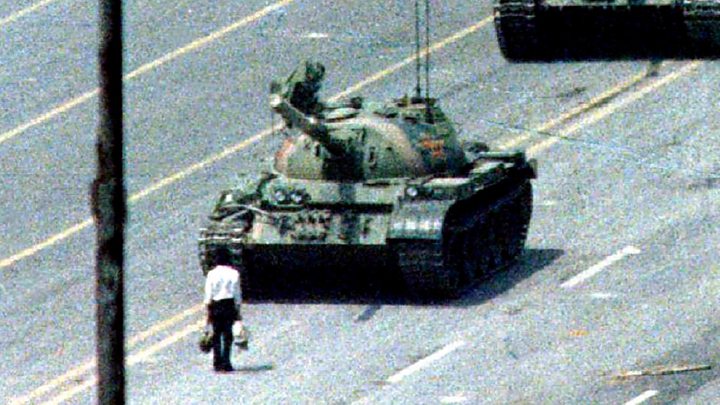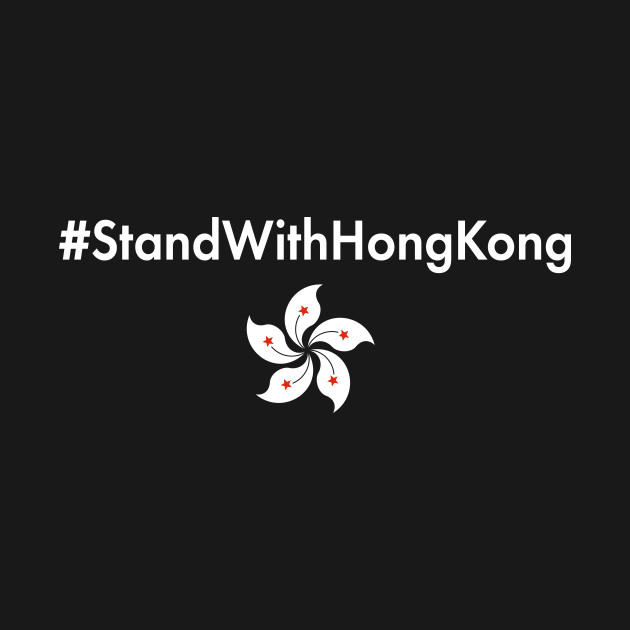As Red Army Soldiers Take To Hong Kong’s Streets For The First Time: What’s this clash of competing ideologies and beliefs all about? China: The View from Over the Wall
Also see:
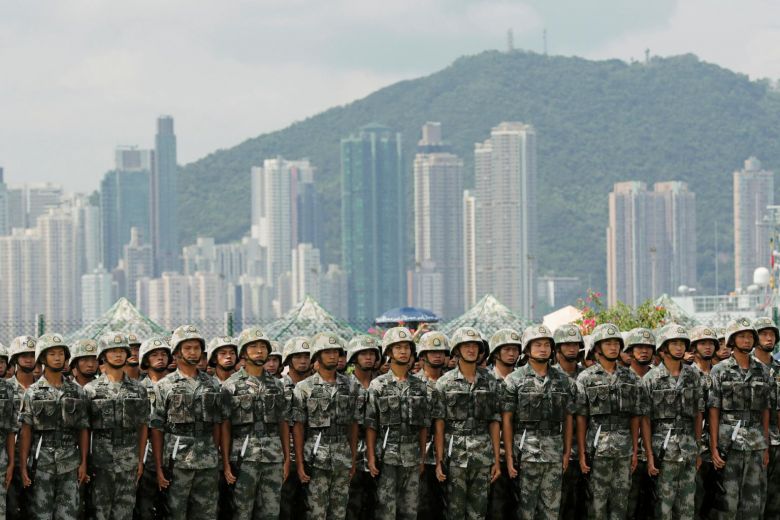
Saturday November 16th 2019:
We know from the history of conflicts such as Northern Ireland that the presence of troops on the streets can only end in more bloodshed. I urge the Chinese and Hong Kong authorities to de-escalate tensions and restore democracy and the rule of law. This goes against Hong Kong’s legal framework and will not help restore peace, which we all want to see. – David (Lord) Alton, Vice Chair of the Westminster Friends of Hong Kong
Deployment of Chinese troops in Hong Kong a “significant escalation” and “breach of Basic Law of Hong Kong”
Commenting on the deployment of Chinese PLA troops on the streets of Hong Kong for the first time during the five months of pro-democracy protests,
John Song, a spokesperson for Stand with Hong Kong, a pro-democracy group, said:
“We have seen five months of police brutality towards protestors, and now we are seeing Chinese troops being deployed in a breach of the Basic Law of Hong Kong. This is a significant escalation when the Hong Kong and Chinese authorities should be trying to calm things, meet our demands and restore the rule of law. This attempt to normalise the deployment of the PLA will strike fear into the hearts of ordinary citizens. This will not end well.”
=============================================
The View from Over the Wall
The Great Wall of China – nearly 3,000 years old – can teach us a lot about Xi Jinping’s twenty first century China.
Whilst visiting it, my guide reminded me that the Wall is sometimes called “the longest cemetery in the world”: 400,000 of the million conscripted labourers died in its construction.
The Great Wall consists of connecting trenches, watchtowers, barracks and fortresses. It was a military construct to defend the capital: Beijing.
However, it didn’t, keep out Genghis Khan and his Mongols – and there were other successful breaches too. But it did create a psychological barrier between Chinese civilisation and the hostile barbarism to the north.
Today, President Xi Jinping loves to talk about building new walls to create a hermetically sealed Chinese State.
Having declared himself President for Life, and increasingly mocked as “the Emperor”, he says he wants China to be ideologically pure – encased by walls and gates and, through which, a network of roads can transport food and raw materials, armies and weapons, from dependent, mortgaged, vassal States.
Xi’s imperial inspiration is not drawn from the Ming Dynasty but is of a piece with Mao Tse Tung, China’s last Emperor, ( who described the West as “running dogs”; “Monsters” who “shall be destroyed”).
Like Mao, Xi is a hard-line Communist, countenancing no opposition.
His hatred of difference and dissent is why the people of Hong Kong and Taiwan are so fearful that their own vibrant way of life will no long be tolerated in Xi’s walled up China.
They know where Mao’s ideological hatred of difference and plurality led.
According to the historian, Frank Dikötter, the Cultural Revolution and the Great Leap Forward makes Mao the greatest “mass murderer in world history.”
You could argue that Mao’s actions were simply of a piece with the phenomenal disregard for human life that occurred during the construction of the Great Wall. But even by those brutal standards the scale of Mao’s crimes is horrifying: systematic torture, starvation and the mass killing of an estimated 45 million people who were worked, starved, or beaten to death, with a third of their homes destroyed.
Mao calculated that it was a small price to pay to achieve his ideological objectives of building Communist China.
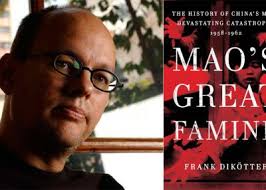
In “Mao’s Great Famine; The Story of China’s Most Devastating Catastrophe” Dikötter describes a “staggering degree of violence” and asserts that Mao’s atrocities rank “alongside the gulags and the Holocaust as one of the three greatest events of the 20th century…. It was like Pol Pot’s genocide multiplied 20 times over.”
He describes how a child caught stealing a potato was tied up and thrown into a pond; how parents were forced to bury their children alive; how people were forced to work naked in the middle of winter; how, when the elderly or sick were no longer able to work they were starved to death.
Some were able to escape – and even make it to a little oasis of freedom called Hong Kong.
Memories are not so short that families don’t remember from what they escaped or, indeed, what might be visited on them again.
President Xi works from the same playbook as Mao. Just ask the Uighurs.
In 2017 he ordered officials to erect a “Great Wall of Steel” around the western region of Xinjiang.
En route to Tibet I visited Western China – home to the Turkic-speaking and a largely Muslim Uighur minority.
Instead of seeing, as I did, the beauty of different ethnicities and races, different religions and traditions, Xi has decreed that they must be re-educated, brainwashed, intimidated, and reprogrammed.
The notorious and ruthless Communist overseer, Chen Quanguo – China’s Heinrich Mueller – was brought from Tibet to implement it.
At the recent launch of the Coalition for Genocide Response, at Westminster, we heard from a Uighur doctor about the disappearance of 100,000 Uighurs and his fear that, like Falun Gung practitioners, their corpses may have been plundered for organs.
An independent tribunal, chaired by Sir Geoffrey Nice QC, concluded that there is “incontrovertible evidence” that the State has collaborated in forced organ harvesting in China.
According to the Uighur doctor, the motivation in desecrating and digging up over 40 Uighur cemeteries, with corpses and bones thrown to the vultures, is not simply to destroyed identity, and to use the dead to intimidate the living.
It is also to destroy evidence.
He says that these expanding cemeteries were used to bury plundered cadavers and digging them up now is an attempt to eradicate the evidence of mass atrocities.
The Genocide Coalition heard about Tursunay Ziyawudun a 41-year-old Uighur woman from Kunes County. She has described rape, abuse and widespread sterilisation in Xinjiang’s re-education camps.
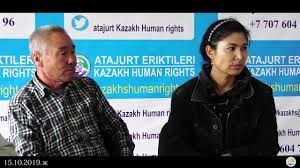
Ms.Ziyawudun says, the Communist authorities regularly ‘took women to the hospital and operated on them so that they no longer could have children or forced them to take medicine” to prevent them from reproducing.
In a chilling testament she says: “ Their methods of torture were always different, but a common practice was to tie you up on a metal chair during interrogation. They cut off our hair, after pulling it through the bars of our cell, including that of elderly women. We were all handcuffed, shackled, and frequently called out for interrogation. The screaming, pleading, crying, is still in my head.”
Looking over the wall at the mass incarceration of Uighurs, the people of Hong Kong recall their own stories.
They know about China’s churches that were desecrated, looted, and turned into storerooms and factories – two of which I visited in Shanghai 30 years ago.
Hong Kongers – many of whom are Buddhist or Christian – are well aware that the assault on religion in China today is the most systematic since the lethal cultural revolution when believers were incarcerated, tortured, some burnt alive, some sent to labour camps.
The Communists publicly paraded believers through cities and towns and forced then to wear cylindrical hats detailing their crime of belief.
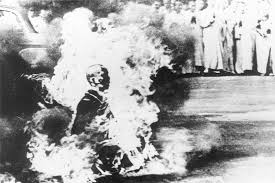
Hong Kongers know about the self-immolation of despairing Buddhist monks. They know about the demolition of Christian churches and Marian shrines. Unlike the Vatican, they remember how Bishop Kung was incarcerated for 30 years.
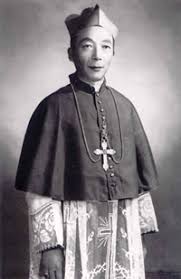

And how ironic that Hong Kong’ Carrie Lam, who has presided over unspeakable violence, is a Catholic.
Having peered over the wall, and seen this same relentless and shocking ideology, incapable of respecting difference, coming their way in the armoured vehicles and tanks of the Red Army, and soldiers cleverly camouflaged in the uniforms of the once proud Hong Kong Police Force, it is incredible that we have the temerity to wonder why the people in Hong Kong take to the streets.
Yet, while the geese are waking Hong Kong’s citadel we in the West drowsily slumber and fall asleep at out posts – wishing away what Hong Kong has seen all too clearly.
What thought was given, what due diligence was done, before UK local authorities and the National Health Service bought more than 1.3 million surveillance cameras from Hikvision a Chinese CCTV company?
Hikvision has been advertising cameras that racially profile Uighur Muslims, providing surveillance equipment in Xinxiang.
When it comes to China, we seem to think that money is all that matters: just business as usual. Contracts signed in other people’s blood.
Having, this week, been offered over £1 billion to hand over British Steel to China; having this week discovered that the BBC have produced a promotional video in support of Huawei’s bid to take over our telecommunications industry; having been alerted to endless examples of Chinese attempts to buy up our universities and colleges; is it too much to hope that the UK might wake up to some harsh realities?
Probably not.
Why not sell them Buckingham Palace, Ascot, Wimbledon and Lords, while we are at it?
Perhaps we already have.
In addition to incarcerating his people behind a hideous wall of Communist conformity Xi has been erecting one other Wall.
In 2013 Parliament’s Intelligence and Security Committee published a scathing report on Huawei’s potential infiltration of GCHQ and our intelligence and security operations.
China’s history of cyber-attacks is an essential element of their relentless campaign to build a wall against the flow of information.
Xi’s “cyber sovereignty” is also designed to open a window into every aspect of what they see as a lazy and indifferent, hedonistic, liberal West.
Before Xi came to power the internet began to offer a space for Chinese citizens to explore their ideas and beliefs and to become familiar with friends across the world.
Now, China is home to the biggest censorship operation in the world.
Xi’s Great Firewall – and now his “Great Cannon” and ”Golden Shield” replace information as well as blocking it.
In defiance of Article 19 of the Universal Declaration of Human Rights – which promises citizens the opportunity to access information and news – what Xi boasts is the Great Firewall.
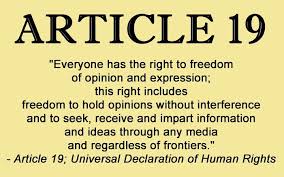
Happily, many smart Chinese people know their way around the wall.
and make mock of the Emperor.
They tell you that Xi’s phrases “strong nation” and “wall nation” share a phonetic pronunciation in Chinese (qiangguo); that trying to build these new cyber walls simply demonstrate weakness.
But that doesn’t stop China from trying.
Harvard estimates that 448 million comments on social media are tampered with every year. It is said the State employs 2 million people to do this.
Ultimately, Xi will have to come to terms with the real world of Hong Kong, the real world of Taiwan – both of which illustrate the great country China could be if Mao and the Cultural Revolution had not intervened; if bridges had been built rather than walls.
On its new trajectory, China’s dream – to be an alternative America – is turning into a nightmare, for itself and for its neighbours.
President Xi should understand that being a father of the “Great Firewall” will never endear him to a rising generation who want China to be one of the world’s great nations, not a walled-up prisoner of its own narrow ideology.
They will simply come to openly despise him.
And that generation have never forgotten or forgiven the Communist Party’s massacre of 10,000 young pro-democracy campaigners in Tiananmen Square, thirty years ago.
As they see their university campuses turned into battlefields, Hong Kong remembers Tiananmen, too.
Yes, you can try and build a wall, but people will look over it, they will tunnel underneath it; they will undermine its foundations; and they will find ways around it.
Berlin had a wall, and look what happened to that. That’s the human spirit.
This is the real point of the bravery of Hong Kong’s pro-democracy movement; the real point of the protests; the real point of why the west needs to stop sitting on top of the wall and come down on the side of those who stand with us and believe in our values, our interests, and our security.
That’s why Hong Kong’s stand is like the Alamo – a battle that may be lost, but a war which was ultimately won.
And don’t underestimate the faithful and brave people of Hong Kong.
Our great English Bard created the character of Tom Snout, in “A Midsummer Night’s Dream”.
In a play within the play Tom plays the part of the wall which separates Pyramus and Thisbe. The two lovers whisper to one another through Snout’s fingers – which represent a gap in the wall.
Is it too much to hope that like those lovers, we might do the same?
